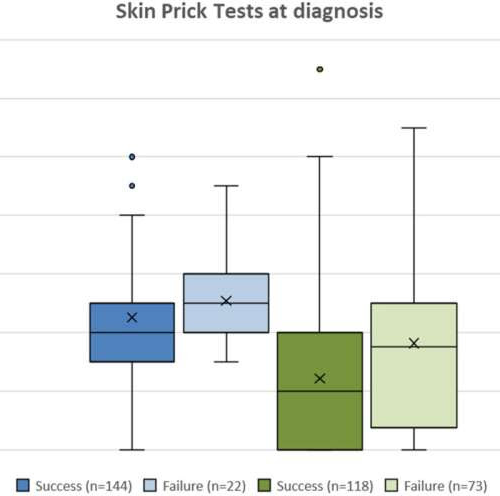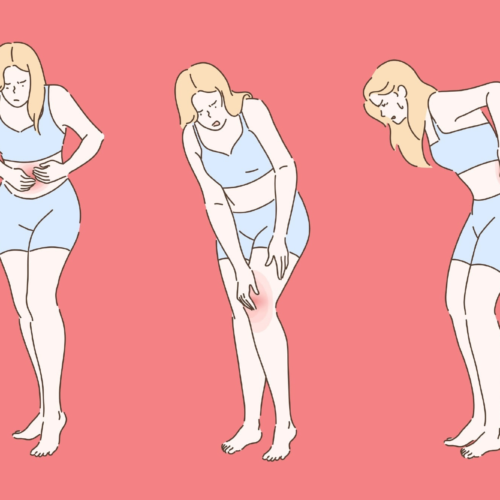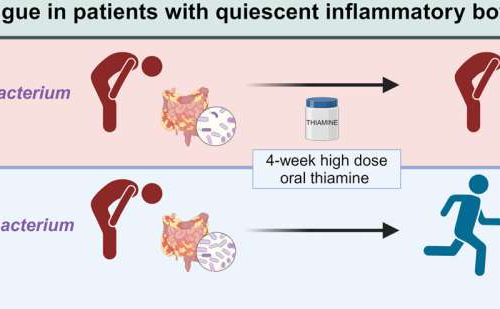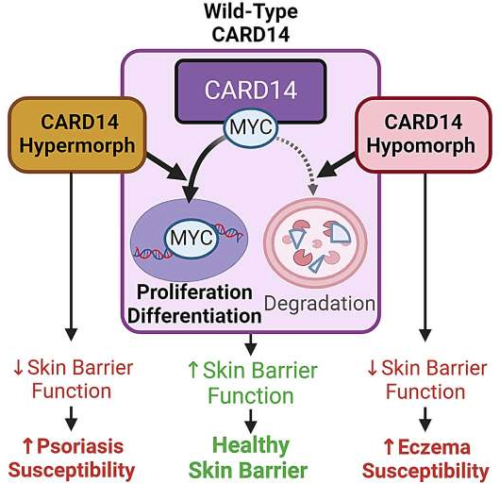Psoriasis is a chronic inflammatory skin condition that affects 0.11%-1.58% of people globally. There are multiple types of psoriasis, of which plaque psoriasis is the most common, affecting up to 80% of individuals with psoriasis. Other types of psoriasis include guttate, pustular, flexural, erythrodermic, and follicular. Psoriasis can significantly impair a person’s quality of life and lead to serious comorbidities such as psoriatic arthritis, hypertension, cardiovascular diseases, and...
Category: <span>Inflammation</span>
Study highlights pervasiveness of inflammation in American diet
October 1, 2024 by Misti Crane, The Ohio State University Box plots of energy-adjusted dietary inflammatory index scores by two-year National Health and Nutrition Examination Survey cycles. The range of observed E-DII scores was -5·96 (anti-inflammatory dietary potential) to 4·90 (pro-inflammatory dietary potential). (Bars represent the interquartile range; dots represent outliers.) E-DII, energy-adjusted dietary inflammatory...
Thaumatin, a natural sweetener with anti-inflammatory potential
September 30, 2024 by Gisela Olias, Leibniz Institute for Food Systems Biology A new study by the Leibniz Institute for Food Systems Biology at the Technical University of Munich shows for the first time that bitter tasting protein fragments (peptides) are produced in the stomach during the digestion of the natural sweetener thaumatin. In a...
New research confirms link between perceived stress and psoriasis relapse
September 26, 2024 by European Academy of Dermatology and Venereology Innovative research has provided compelling evidence that perceived stress can directly trigger the relapse of psoriatic skin lesions. The study, presented at the European Academy of Dermatology and Venereology (EADV) Congress 2024, is the first to scientifically validate this connection in vivo. Psoriasis, a chronic...
Protein blocking bone development could hold clues for future osteoporosis treatment
Scientists have identified a protein that blocks the activity of bone-forming cells (osteoblasts) by stopping them from maturing during the journey to sites of bone formation. In their paper published in Communications Biology 11 October 2024, a team of researchers led by Dr. Amy Naylor and Professor Roy Bicknell along with their team including Dr. Georgiana Neag...
Researchers discover new ways to ‘turn off’ receptor involved in inflammatory diseases
Adam Oken, B.A., a graduate student in the Mansoor lab, points to a cryo-EM map (blue) and its corresponding model (mostly yellow and other colors). The cryo-EM map is generated after processing data obtained from the “advanced imaging techniques” and it directly corresponds to the position of atoms in 3D space. The assembly of thousands...
New approach to milk allergies promises breakthrough
September 19, 2024 by University College Cork Skin prick test (SPT) levels of patients who had treatment success and treatment failure in both cohorts. Milk ladder in blue and Strick avoidance in green. Credit: Pediatric Allergy and Immunology (2024). DOI: 10.1111/pai.14195Researchers have demonstrated how a novel approach to managing cow’s milk allergy could transform how...
What Does Inflammation Do to the Body?
By Marzia KhanReviewed by Danielle Ellis, B.Sc. What is inflammation?Inflammation is an immune response from the body’s immune system when there is a perceived injury or infection. When injured, inflammation causes the area to become red and swell due to a large number of white blood cells flowing into the area to fight against infection...
Vitamin B1 linked to reduced fatigue in some inflammatory bowel disease patients
September 3, 2024 by Aarhus University Graphical abstract. Credit: Gastro Hep Advances (2024). DOI: 10.1016/j.gastha.2024.08.012Fatigue is a common and often debilitating companion for people with inflammatory bowel conditions. Now, a new Danish study provides insight into why vitamin B1—also known as thiamine—helps some patients regain their energy, while others do not experience the same effect....
New findings on CARD14 protein’s role in eczema and psoriasis
August 8, 2024 by Cincinnati Children’s Hospital Medical Center Study pierces a mystery of healthy skin barrier formationCARD14 directly binds and regulates MYC, a protein involved in controlling cell growth that can contribute to cancer when it malfunctions. A study published in Cell Reports shows that the proper interaction between these two proteins is important...




